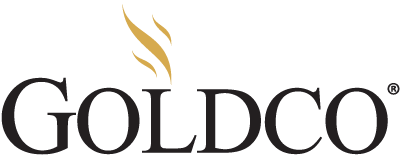Disclosure: Some of the links in this article are from sponsors. The list below is an honest review gathered from thorough research, experience, and consumer-based feedback.
Best Overall

5/5 Rating
#2 Overall

4.5/5 Rating
Gold Investing - Save Your Retirement from Harm
Gold ETFs VS Gold Futures
There are plenty of opportunities to buy gold, and particularly in this age of hyperinflation, where prices are going through the roof, and the fact the stock market, the traditional avenue for investors is expected to be relatively flat in 2022.
Expect stocks to go no higher than 3 percent next year, well below the estimated inflation rate of perhaps 5 percent.
As a result, Gold is looking much better in late 2021, early 2022, and investors are clamoring right now to understand their options.
Two of those options for buying Gold are Gold ETFs, (Exchange-traded funds) and Gold Futures, although many investors, new to gold, are not sure what either option is.
Another great option to hedge against inflation is gold mutual funds compared to gold ETFs.
Gold ETFs
If you imagine having a small safe full of gold in the event of an economic disaster, then Gold ETFs will come as a shock to you, for the reason that when you buy Gold ETF's, you do not take hold of any physical gold.
You do not own any gold, just as if you buy stock in General Motors, you can't just gain entrance to a GM assembly plant and start hauling off cars to use for your personal enjoyment.
With Gold ETF's there is a collective amount of gold owned by the company, and you as an investor, get shares of participatory ownership, just as you get a share of partial, participatory ownership in buying any other stock.
The big advantage of buying shares in a Gold ETF is first of all that you never have to worry about depository fees, where the gold is stored, or how to protect it, just as if you bought shares in a bank and do not have to worry about how big a safe they have, or how good is their security.
The real advantage of buying shares in a Gold ETF however, is that you do not need to be rich to buy shares.
Gold currently hovers at around $1800 an ounce, but that does not mean that you have to come up with $1800 (plus the spot premium to buy it.)
With Gold ETFs, you can buy shares in a Gold ETF for as little as $17 per share.
As a consequence, whether you are wealthy or just the average investor, it's entirely financially feasible to invest in gold with Gold ETFs.
Buy a single share, or buy 10,000 shares, the principal remains the same.
your shares go up in value and can be sold on the open exchange market for cash, or if the price of gold drops like a hot potato, you lose value in how much you can get for your share prices.
Of course, the vast majority of those investing in Gold ETF's use their shares as a hedge to protect their valuable investments, so they hope that the Gold ETF will keep them making profits.
 | $50,000 Minimum Investment Free portfolio reviews for all clients | *Most Professional *Best Pricing |
Gold Futures
The other avenue I am concentrating on here is gold investing in Futures.
Just as corn, soybeans, wheat, oats, rice, ethanol, and more are sold on the open commodity market, so too are gold futures available.
Gold contracts on the commodity futures market are sold in units equal to 100 ounces of gold.
So if you were to buy a contract for gold at the current rate of around $1880 per ounce, the contract would've sold at around $180,000.
As a consequence, gold futures are quite a lot more of an investment than buying a Gold ETF, which oftentimes can be purchased for around $17 a share.
True, one of the great things about buying Gold Futures is leverage. Following exchange rules, typically it is possible for an investor to control that potentially $180,000 worth of gold for around $12,000 or roughly $1 worth of investment for every $15 worth of value.
The advantage of Gold futures is that an investor can make a lot of money very quickly if the price of gold goes in the right direction. However, it cuts both ways.
If an investor is wrong and the price of gold goes in the opposite direction, they can lose a ton of money fast.
The major disadvantage of investing in Gold Futures is that it is a market for sophisticated investors, not for the average Joe on the street, and many major brokerage services do not allow you to trade on margin.
Investment Minimum
The investment minimum for buying a single share of Gold ETFs can be as low as $17 a share, or even lower if you want to invest in a Gold ETF offshore.
Currently, the most expensive Gold ETF may possibly be SPR Gold Shares, which costs around $166 per share.
As stated above, to invest in a Gold Future contract, at a minimum you will be required to come up with around 1/15 of the value of the contract based upon the spot price of gold.
Of course, the actual price you will pay will depend as well on how far the contract goes out.
If you select a contract that is short-term, you will pay near the spot price now.
But if your prognostics are 6 months out, you may be able to obtain the contract cheaper.
That being said, the minimum amount of money you will need is probably $10,000 to $12,000.
Investing with $5,000 in these assets won't be your best bet.
Liquidity
Liquidity is high whether you sell Gold ETFs or Gold Future.
There are millions of buyers and sellers in both the Gold ETF and the Gold Futures market.
Of course, in the case of Gold futures, it depends upon how near the contract end date is complete.
If you bid on a Gold Futures Contract to be delivered in early November the price of gold is dropping or even if it is flat, do not expect to get near what you bid on it when it was fresh.
However, if the contract has another 4 months before completion, it has more value as a hedge, and you are likely to easily find willing buyers.
Transaction Costs
Using SPDR as an example, typical transaction costs are around .40%.
So if you bought $20,000 of Gold ETF's from SPDR, you would pay around $80 per year in fees.
There may also be brokers fees, typically around $10 for non-assisted Gold ETF purchases.
With a gold future, initially, there may only be the margin costs to contend with, but let's say the price of gold drops $10 per ounce, which means your 100 troy ounce contract is now worth $1,000 less.
If your total brokerage account was only large enough to cover the margin, then you would be expected to pitch in more money to meet the maintenance margin requirement.
Failure to do so could result in your brokerage company immediately liquidating your holdings.
Expenses
Besides the transaction fees, the major expense connected with Gold ETFs is a rather high capital gains tax, which can be up to 28%.
So plan on holding your Gold ETF for a significant amount of time to reduce capital gains tax.
Gold Futures is a different animal.
First of all, realize that except for jewelry manufacturers or industrial manufactures who use gold for electronics, most Gold Futures buyers never intend to take actual control of the gold, but will sell out before the contract can be filled.
However, if an investor does take actual control of the gold, he or she will have many more expenses than merely paying capital gains tax.
Where does an investor store $180,000 or more worth of gold? Either he or she puts it into a safe, or has it delivered to a gold depository to keep it for them, which again involves additional expenses.
Mode of Investment
To buy a Gold ETF, you go through a broker, and the good news is that for certain Gold ETF's, some brokers charge no commission at all. At the most, you will pay around $10 for a non-assisted brokerage fee.
With Gold Futures, you also go through a broker, and preferably one who will allow you to buy Gold Futures that are being leveraged.
You set up an account, deposit the required money, and the broker will purchase the gold for you at one of the various stock exchanges that sell Gold Futures.
The actual mode of investment is pretty much the same, however notably, you will need to have considerably more money in a brokerage account to invest in Gold Futures.
In Conclusion
Gold ETFs and Gold Futures are both great options to hedge against inflation.
Doing so will result in your money keeping more of its value than if you had left it in US dollar based assets.
Your best and safest option is investing in ETFs through a gold IRA.
If you have a retirement account already, check out my gold IRA rollover guide.
To learn more about gold IRA, Futures & ETF investing, get the free, easy to read guide below:
